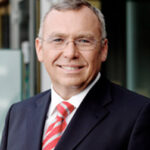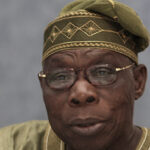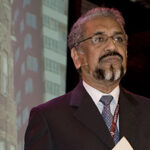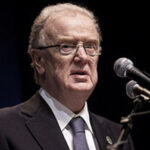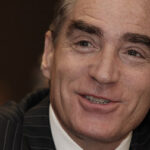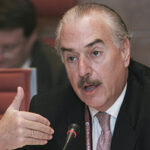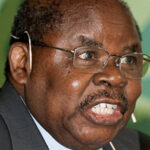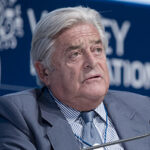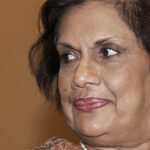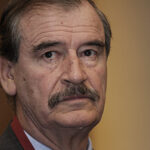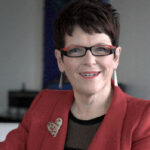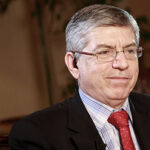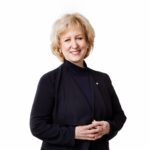During discussions on the root causes of conflict and ways to seek resolution, participants, including the President of the Club de Madrid, Wim Kok; former Polish President Lech Walesa; and human rights activist, Bianca Jagger, identified access to education, economic opportunity and engaging the world’s young people as essential ingredients for building cultural bridges and stable societies.
A number of the distinguished speakers discussed their own experiences as political activists and prisoners of war and how those events not only shaped their beliefs about intolerance, but informed their perspectives on what is necessary to bring about change in today’s world.
Showing his gratitude for the participants’ involvement, Center President Sheikh Fahad said, “This is only the beginning of what I hope to be a productive, ongoing discussion about the ways we can work together to overcome tyranny and oppression. I look forward to our continued work, but I’m even more optimistic about the impact we will have.”
Highlights from the forum’s thoughtful, interactive discussions include:
Panel 1: The Roots of Conflict
o Education combats ignorance: Panelists pointed to education as a fundamental human right, the absence of which leads to conflict. They also stressed the need for cross cultural education beginning as early as possible in a child’s life.
o People have a right to economic stability: The group agreed that the opportunity to work, advance and build a future is a basic human right. Without the opportunity to pursue prosperity and individual dignity, conflict will persist.
o Youth will be critical to driving change: Vast numbers of young people, in all regions of the world, lack access to education and opportunity. As recent events in the Middle East and Africa have shown, these young men and women are demanding and receiving access to their rights.
“We are now in a time of great promise and insecurity, but it is important that we focus on the promise,” said Jim Hoge, Chairman of Human Rights Watch. “The youth in the region will play a critical role in driving conflict resolution in the future and they deserve and need our support in achieving that mission.”
Panel 2: Dialogue as a Means to Overcome Conflict
o Borders are no longer geographical, but conceptual: Political and cultural borders are becoming less relevant as new technologies allow for interaction with anyone, anywhere at any time.
o Moving from a world of independent to interdependent people: Technology has created an interconnected world, and it is becoming an institution as impactful on a person’s as their family, church, school or physical community.
“Dialogue has changed along with technology. Today, anybody can be a superpower – for 15 minutes. This is forcing us to take into account a different reality,” said former UN Undersecretary General and conference speaker Giandomenico Picco. “Additionally, for millennia, neighbors were contiguous, but now, thanks to social media, your neighbor can be a thousand miles away.”
Panel 3: Media’s Role in Advancing Dialogue
o Traditional media is still vitally important: It has always invited conversations of the people and must continue to do so. Once authoritarians understand that the time for change has come, change occurs quickly. Media and education, together, can apply the needed pressure.
o Social media will continue to be critical: Today’s youth are to be commended for granting legitimacy to social media and to the idea that oppression can be overcome.
o Civilian journalism must continue, but with standards: These standards include transparency, fairness and verification. If, as citizens, we are asking our leaders to be open and upfront, we must demand the same of ourselves.
“Citizens want to be producers – and not just passive recipients of the news,” International Center for Journalists president Joyce Barnathan said. “These citizen journalists are playing an increasingly important role in bringing us the news, here in the Middle East and around the world.”
As part of the forum, participants also toured the Al-herrar facility, as one of the Fahad Center’s key goals is to provide both content and an outlet for free and open conversations about human rights and democracy. Al-herrar means “city of media” in Arabic and it will serve as a platform that allows citizens to play an active role in creating and distributing content. During the tour, participants showed hteir support for Al-herrar by ceremonially signing their names on a wall featuring its mission.
“This forum was a tremendous success, not just for the Center but for Kuwait,” Sheikh Fahad said. “If we are serious about democracy and liberty, we must work to make them a reality in our own house. This is what the Center, this forum and our work going forward are all about.”
Forum participants include:
- Kim Campbell, Former Prime Minister of Canada (1993)*
- Wolfgang Clement, Former Minister of Economy and Labor of Germany (2002 – 2005)
- Vicente Fox, Former President of Mexico (2000 – 2006)*
- Cesar Gaviria, Former President of Colombia (1990 – 1994)*
- Alfred Gusenbauer, former Chancellor of the Austrian Federation (January 2007 – December 2008)*
- Bianca Jagger (Nicaragua), Founder and Chair of the Bianca Jagger Human Rights Foundation, Council of Europe Goodwill Ambassador, Member of the Executive Director’s Leadership Council of Amnesty International USA, and Trustee of the Amazon Charitable Trust
- Wim Kok, Former Prime Minister of the Netherlands (1994 – 2002), President of the Club of Madrid*
- Chandrika Kumaratunga, Former President of Sri Lanka (1994 – 2005)*
- Luis Alberto Lacalle, Former President of Uruguay*
- Benjamin Mkapa, Former President of Tanzania (1995 – 2005)*
- Olusegun Obasanjo, Former President of Nigeria (1976 – 1979 and 1999 – 2007)*
- Andrés Pastrana, Former President of Colombia (1998 – 2002)*
- Pavel Palazhchenko, head of the international department of the New Policy Forum (Gorbatchev Foundation)
- Giandomenico Picco, Former UN Under Secretary General for the United Nations
- Petre Roman, Former Prime Minister of Romania (1989 – 1991)*
- Swami Sadyojathah, Director–International Affairs of the Art of Living, Founder/Director of Sri Sri College of Ayurvedic Science and Research
- Jorge Sampaio, Former President of Portugal (1996-2001 and 2001-2006)*
- Jennifer Mary Shipley, Former PM of New Zealand (1997 – 1999) and Vice President of the Club of Madrid*
- Cassam Uteem, Former President of Mauritius (1992 – 2002)*
- Lech Walesa, Former President of Poland (1990 – 1995)
- Betty Williams (IR), Nobel Peace Prize (1976) – founder World Center for Compassion for Children
* Members of the Club de Madrid
